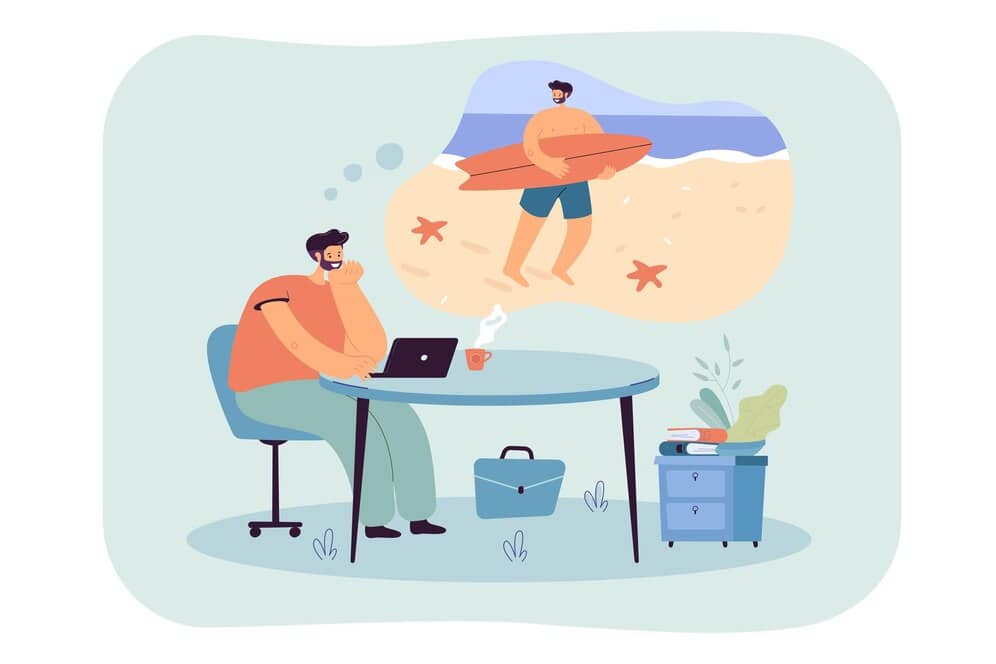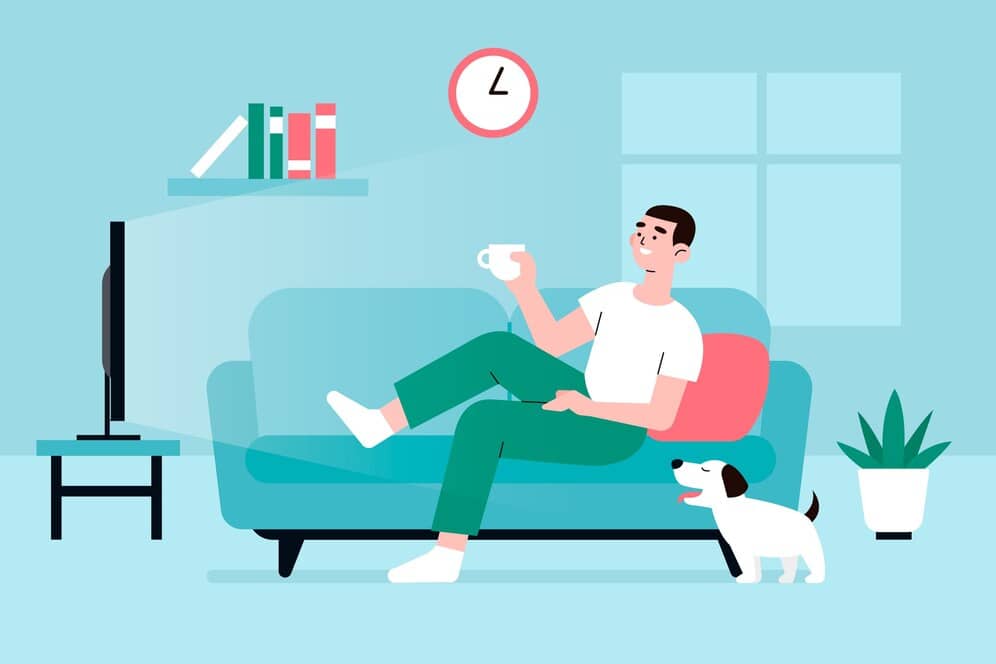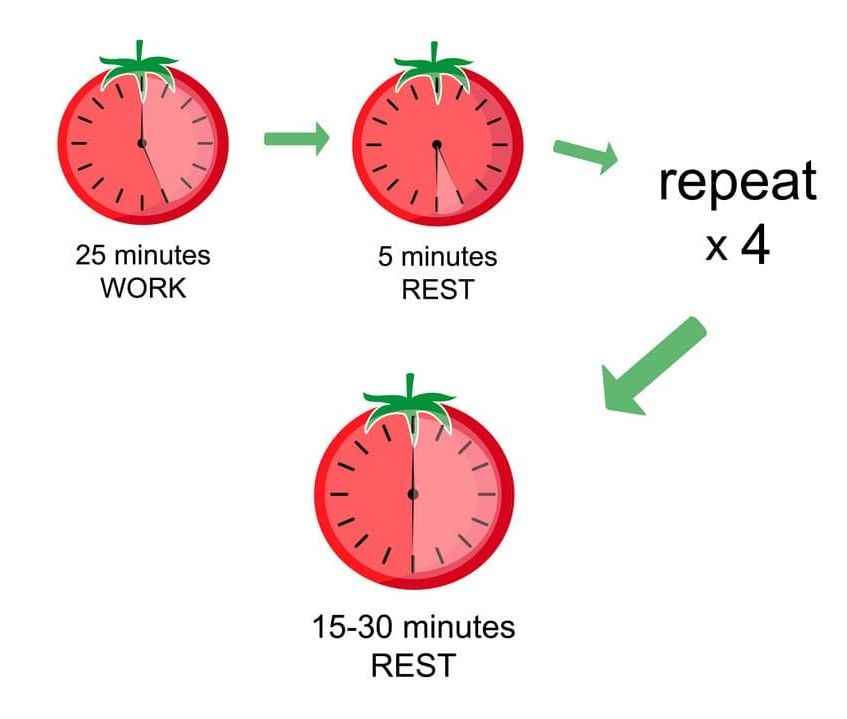Procrastination Benefits: How Putting Off Things can Help
Procrastination can be more helpful than people think--revisit your beliefs on the concept
We have all been hard on ourselves or felt guilty for procrastinating at some point in life. Procrastination often gets a bad rap because of the notion that it makes you inefficient, lazy, or wastes precious time—it does have negative effects, but that's not always the case. Believe it or not, sometimes, procrastination is good.
Interesting, right? If this is news to you and has got you wondering how active procrastination behavior can be reframed to have positive effects on productivity or how changing your perspective on procrastination can reduce stress, read on to find out!

Surprising Benefits of Procrastination You Should Know About
Accidental Efficiency
We're all familiar with that urge to put tasks off until their deadlines approach, along with that inevitable feeling of regret when you realize you wasted all that extra time you had. You might have done that with your research papers as college students or the projects you worked on as professionals.
When we procrastinate or wait to do things until the deadline stares us in the face--only getting to work at the last minute--a couple of things can happen. One, we focus on just getting something done rather than chasing perfection; and two, we increase for ourselves the pressure of maintaining our academic performance or career progression. To strike a balance between the two, we find smart, efficient shortcuts, because we know that time is of the essence and efficiency is key to make the deadline, turn in something decent, and avoid failure.
So in a way, procrastination behavior helps us find efficient solutions and save time, rather than keep dwelling, overthinking, and taking too long to make decisions.
Space to Weed Out the Unnecessary
As young adults, we try to maximize our productivity and time by taking on several different jobs and activities, hoping that we may learn something from all of them. But once you're in the process, you may be unable to gauge whether it is actually giving you something in return and your perspective gets a bit distorted. So eventually, you may end up just going through the motions without really taking stock of where your time and energy are being spent.
So when you indulge in procrastination behavior and avoid certain tasks, you're actually allowing yourself to evaluate whether you really need or want to do it at all. If the answer is no, it's probably best to put some goals to bed rather than keep them constantly pending on your to-do list.

Room for Creativity
Say you're given a task and get to it right away—there's no active procrastination involved—your first instinct is to get it done the conventional way. Sure, this would give you the result that you want, but it doesn't really let you explore how things could be improved or what new ideas could be introduced. When you give yourself the time to mentally assess a goal before diving in, you may be able to channel some creative thinking, get into the "flow", and perhaps bring some unique ideas to the table.
Reducing Stress and Anxiety
When you're about to start on a project or task that you know is difficult or complicated, you may feel a lot of anxiety. Can you actually get it done? What kind of negative consequences will there be, if you can't? For many, the stress doesn't go away until you've finally finished what you have to do. But in the process, you lose patience, stop approaching things with a clear mind, and can't give it your best shot--this is something you hear often from university students considering they're quite prone to academic procrastination.
So, delaying stressful tasks until you finally feel ready to do them might actually be a smart thing to do -- this way, you can make sure you do them with a sense of calm clarity.
You Take a Break and Enjoy Yourself
Usually, when we feel like procrastinating on a task, it's because we want to do something that sounds more fun. And let's be honest, unless we're constantly procrastinating (hopefully not!), we probably don't let ourselves relax and enjoy the little things. So at least with the excuse of putting off something, you allow yourself a moment to smell the roses.

To-dos get Tackled
Many people indulge in productive procrastination; they procrastinate on important things to do, by tackling something lower on the priority list. Have you had the sudden urge to clean your desk, when you have a deadline later in the day?
Well, that really isn't so bad, is it? At least something got crossed off of the list! So, it's a win either way.
Looking at these benefits, are you reconsidering your perspective on procrastination and its so-called evils? Perhaps it's time to recheck exactly what procrastination means.
Understanding procrastination
Procrastination comes from the Latin words prō+crāstinus, which means "of tomorrow" and is typically used to describe situations where you keep delaying important tasks or pushing them further and prioritizing other things instead. Anti-procrastination psychology experts say that chronic procrastination can negatively impact your productivity and time management skills if left unchecked.
However, researchers like Tim Pychyl of Carleton University in Canada say that procrastination is a problem of emotional regulation, not time management. Basically, when we procrastinate, we prioritize short-term benefits over long-term impacts. So, the key is to find the sweet spot--how can we practice self-regulation to make sure procrastination doesn't consume us?
How to rethink procrastination behavior
Forgive Yourself
Procrastination is associated with a lot of guilt. Yes, self-regulation is necessary to make sure procrastination doesn't get out of control, but that doesn't mean you always need to be hard on yourself. If you find yourself giving in to the urge, try to analyze the "why" or reason behind it rather than berating your lapses.
Plan your Breaks
If you tend to need a little break in between tasks simply as a way to break the monotony, why not plan for it? The Pomodoro method of scheduling short periods of focused work interspersed by quick breaks, allows you to bring some order into your day and ensures you don't procrastinate due to the lack of clarity, motivation, or breathing room to relax your mind between sessions. You can also go one step further and time-box your day to make sure every minute is accounted for even if it's spent unproductively! Just one quick thing to note—the breaks can't be too long!

Approach Goals Realistically
If you accept your inclination to delay goals, you'll be able to set realistic deadlines and avoid setting yourself up for failure. This way, you will see more success than missed opportunities and a positive shift in the way you do things, which is a confidence boost in itself.
Get accountability
Want to keep procrastination to a minimum? Just find someone who can hold you accountable to your goals and call you out when you start slacking off! Popular personal accountability platforms like Beeminder and stickK keep you in check by making you put your money where your mouth is--and of course, there's Boss as a Service!
How BaaS helps you overcome procrastination
As an accountability partner platform, BaaS knows all about the negative (and positive!) effects of procrastination. Our real, live bosses will check in with you every day to make sure you're getting the work done but not rushing into things, focusing on the positive side of life, allowing yourself a moment to breathe, making room to adapt to pressure, giving yourself the freedom to explore things you've always wanted to, and making efforts to lower levels of anxiety and stress.
Final thoughts
Although active procrastination will manifest differently based on individual differences, rethinking procrastination is the way to go. Recognize the advantages of procrastination -- and leverage them to your benefit!